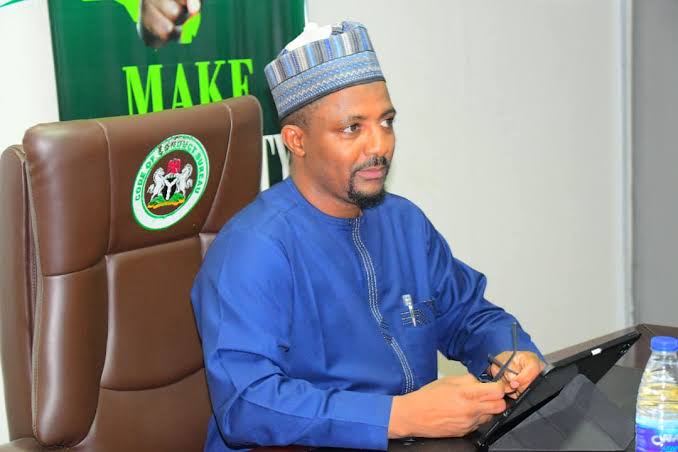
Mr. Oluwafemi Biobaku is a highly experienced Human Resources professional with over 15 years of progressive experience in people management, organisational development, and talent strategy.
With a career spanning diverse industries—including FMCG, retail, and fintech—he has built a reputation for driving business growth through innovative HR practices and a people-first approach.
Currently serving as the Head of Human Resources at Retail Supermarkets Nigeria Limited, Mr. Biobaku oversees the company’s human capital strategy, workforce development, and employee engagement initiatives.
Can you please introduce yourself; your name and what you do?
Okay, my name is Oluwafemi Biobaku. I’m an HR professional with over 15 years’ experience in managing HR for different organisations.
I have cross-industry experience. I’ve worked in FMCG, retail, fintech, and now here in retail.
How can HR lead the shift towards a better work-life balance in Nigerian organisations?
Addressing that question, I’ll start with the phrase “work-life balance”.
We need to first understand what we mean by work-life balance. And that is simply balancing the expectations of work with the demands of your personal life. And what are those demands? They come from family, health, social life, immediate responsibilities—everything that makes up you as an individual.
So how HR leads that conversation must start first with leadership. I believe everything starts and stops at the leadership table of any organisation.
The first thing HR needs to do is to influence leadership’s mindset towards the kind of work-life balance required in the organisation. That, in turn, shapes the daily interaction between leadership and employees, because leaders are the cultural carriers. They are the ones expected to lead conversations about how the business should look in terms of balancing that shift.
The second part is through the introduction of policies. I remember when I started here in 2023, one of the things we looked at was what we could do differently, considering the environment and how it affects employees.
Most of our staff working on the Island come from the Mainland. So, what could we do? We reviewed the shift pattern and redesigned it so that head office staff could work flexible hours, giving them some degree of flexibility.
For those on shifts, we also looked at ways to give them more weekends or time to rest. We made some adjustments and introduced policies to support that.
Beyond policies, health awareness is also important. We started running awareness sessions where consultants, mental health professionals, and doctors spoke on personal life-related topics and issues. Many people are under significant stress. Even commuting alone—moving from point A to point B—can be frustrating.
I just returned from leave, and I can say that being away was restful, but the one-hour traffic I now face every morning has a toll on my psyche and can affect workplace performance. So, by bringing in professionals to talk about managing stress and health-related issues, HR can play a leading role in helping employees create balance.
What’s one practical policy change you believe could immediately improve work culture in Nigeria?
In 2021, I worked in an organisation with employees in Portugal. The Portuguese government had introduced a “Right to Disconnect” policy, which made it illegal for managers to send emails to employees after work or at weekends.
If Nigeria were to adopt such a policy, it could make a big difference. But even without government backing, organisations that genuinely care about staff welfare can introduce such policies internally. It is unproductive for managers to reach out to employees during rest hours unless it’s an emergency.
In many Western countries, once it’s closing time, work stops. If something urgent arises, it’s treated as an exception. That culture of disconnect is something HR can adopt to improve employees’ work-life balance.
There is suggestion in some quarters that 9–5 employees who can finish their tasks in 3–4 hours should be allowed to close for the day. Should Nigeria adopt a policy where they can leave once their work is done?
Yes, I think we can. That’s the truth.
I am open to adopting practices that benefit both employers and employees. I see myself as an advocate for people, because when employees are in the right frame of mind, they produce better results.
I don’t believe in judging people by the number of hours spent at work, but by their productivity. If you deliver quality results in one hour rather than five, that’s fine by me.
Organisations should shift from counting hours to measuring results. For instance, in my early career in finance, many people stayed late at the office, but it wasn’t clear what they were doing. Personally, I would leave at 4 pm once I had completed my deliverables and start fresh the next morning.
If every employee has clear KPIs, there’s no need to count hours. Results should speak louder than time spent.
Do you think hierarchy in Nigerian workplaces is too rigid? Should junior staff have direct access to management?
Hierarchy has its value. It helps with communication channels and organisational order.
But there is a difference between hierarchy and workplace culture. Hierarchy helps define roles, but in some cases where immediate decisions are needed, and a manager isn’t available, employees should be empowered to take initiative—even if it means bypassing the hierarchy to get results.
So, while I support hierarchy as a structure, I also encourage initiative and freedom to act when necessary. That balance keeps the organisation running smoothly while empowering staff.
Do you think Nigeria should adopt a Pay-Per-Hour policy?
First, Nigeria suffers from inefficiencies that make this difficult. For example, it can take an hour to move from the Mainland to the Island because of traffic. If infrastructure allowed quicker movement, pay-per-hour could work better.
In reality, hourly wages already exist here, especially in factories and manufacturing. But in white-collar work, it’s less common. Personally, I wouldn’t mind pay-per-hour if I could do multiple jobs daily. But given commuting stress and long working hours, many employees are already exhausted by the end of the day.
If jobs were more decentralised—say more opportunities outside Lagos—people could work fewer hours at each job and earn more overall. But transportation waste remains a big barrier.
If you could redesign Nigeria’s workplace culture, what three qualities would define it?
- Respect for time – Too often, Nigerians work beyond official hours. The culture of expecting responses after closing or on weekends must change. The “Right to Disconnect” should be enforced to protect employees’ personal time.
- Accountability and empowerment – Managers should give employees freedom to act and take initiative, even in their absence. Decisions can be reviewed later, but that empowerment drives results.
- Work-life integration – The world is moving beyond balance to integration. Work and life shouldn’t be separate but should complement each other. Whether at home or in the office, employees should remain productive without personal life being negatively affected.












